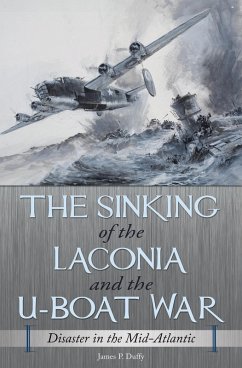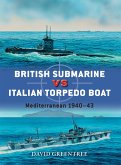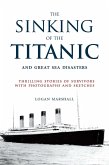Packed with rich detail and analysis, this exciting tale of war at sea relates the dramatic and moving true story of the sinking of the British liner Laconia and its consequences for the conduct of marine warfare.
Duffy discusses in rich detail the dire and dramatic true story of the sinking of the British Liner Laconia by the dreaded U-Boat 156, a vessel crowded with 1800 Italian POWs, 103 Polish soldiers, and 463 officers and crew. As Laconia went down, U-156 surfaced and sent a signal that brought two other U-boats, an Italian submarine, and three Vichy French warships to assist with rescue operations. But on the morning of September 16, a U.S. bomber flew over U-156, now packed with several hundred Laconia survivors. The crew unfurled a large Red Cross flag. Nevertheless, the submarine was attacked. The Laconia survivors were ordered over the side into lifeboats. Damaged, U-156 left the area as other U-boats commenced rescue operations.
In the wake of the incident, German Admiral Karl Donitz issued the Laconia Order demanding that all attempts to rescue Allied survivors of merchant ships be ended. The order provoked an international outcry against inhumane treatment of survivors stranded at sea. In the aftermath of the war, Donitz was charged and acquitted of war crimes in connection with this order.
Duffy discusses in rich detail the dire and dramatic true story of the sinking of the British Liner Laconia by the dreaded U-Boat 156, a vessel crowded with 1800 Italian POWs, 103 Polish soldiers, and 463 officers and crew. As Laconia went down, U-156 surfaced and sent a signal that brought two other U-boats, an Italian submarine, and three Vichy French warships to assist with rescue operations. But on the morning of September 16, a U.S. bomber flew over U-156, now packed with several hundred Laconia survivors. The crew unfurled a large Red Cross flag. Nevertheless, the submarine was attacked. The Laconia survivors were ordered over the side into lifeboats. Damaged, U-156 left the area as other U-boats commenced rescue operations.
In the wake of the incident, German Admiral Karl Donitz issued the Laconia Order demanding that all attempts to rescue Allied survivors of merchant ships be ended. The order provoked an international outcry against inhumane treatment of survivors stranded at sea. In the aftermath of the war, Donitz was charged and acquitted of war crimes in connection with this order.









